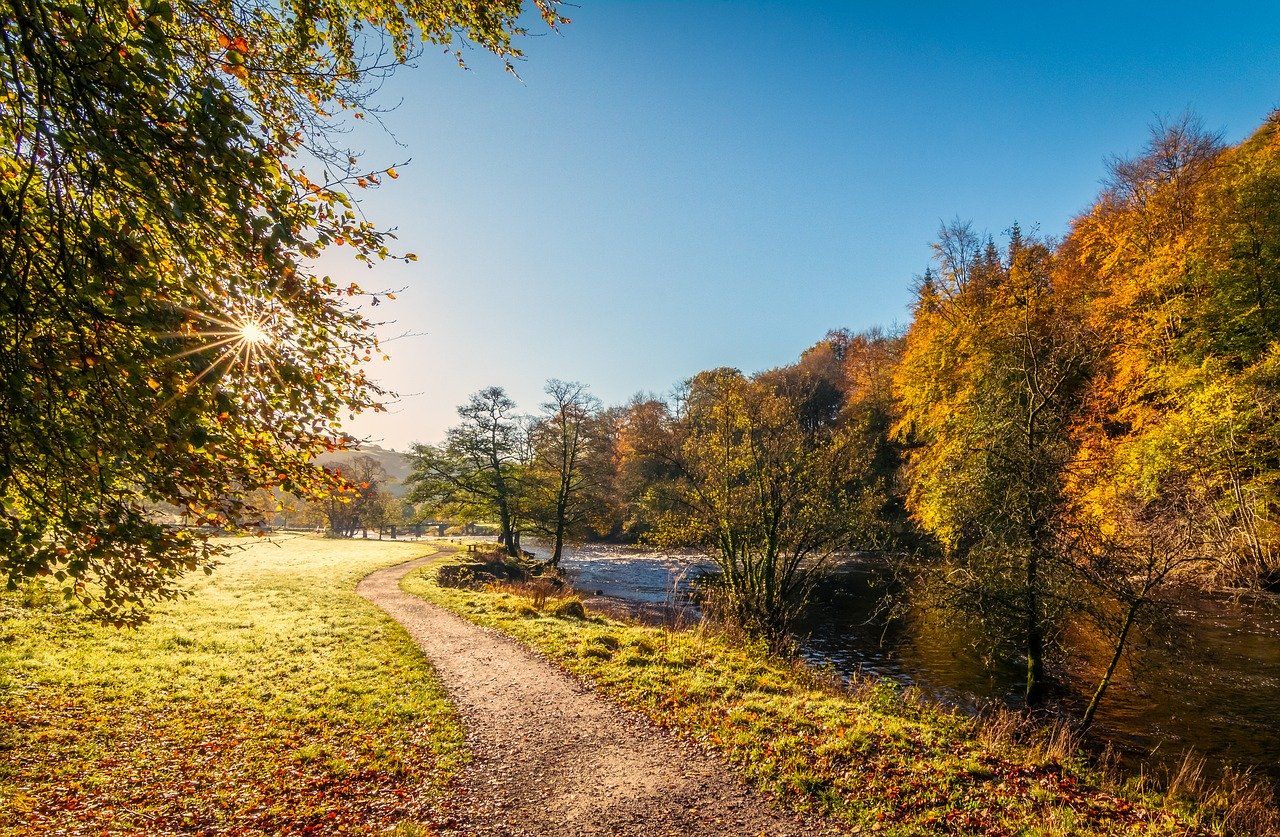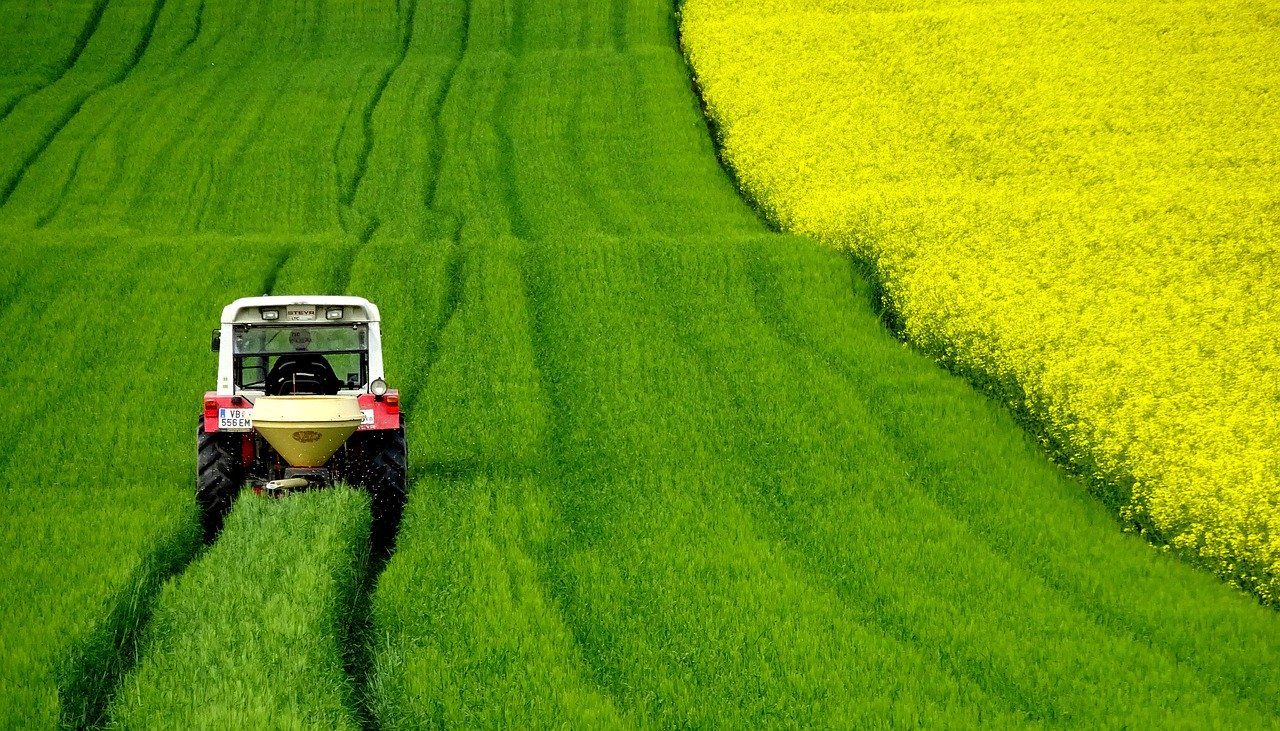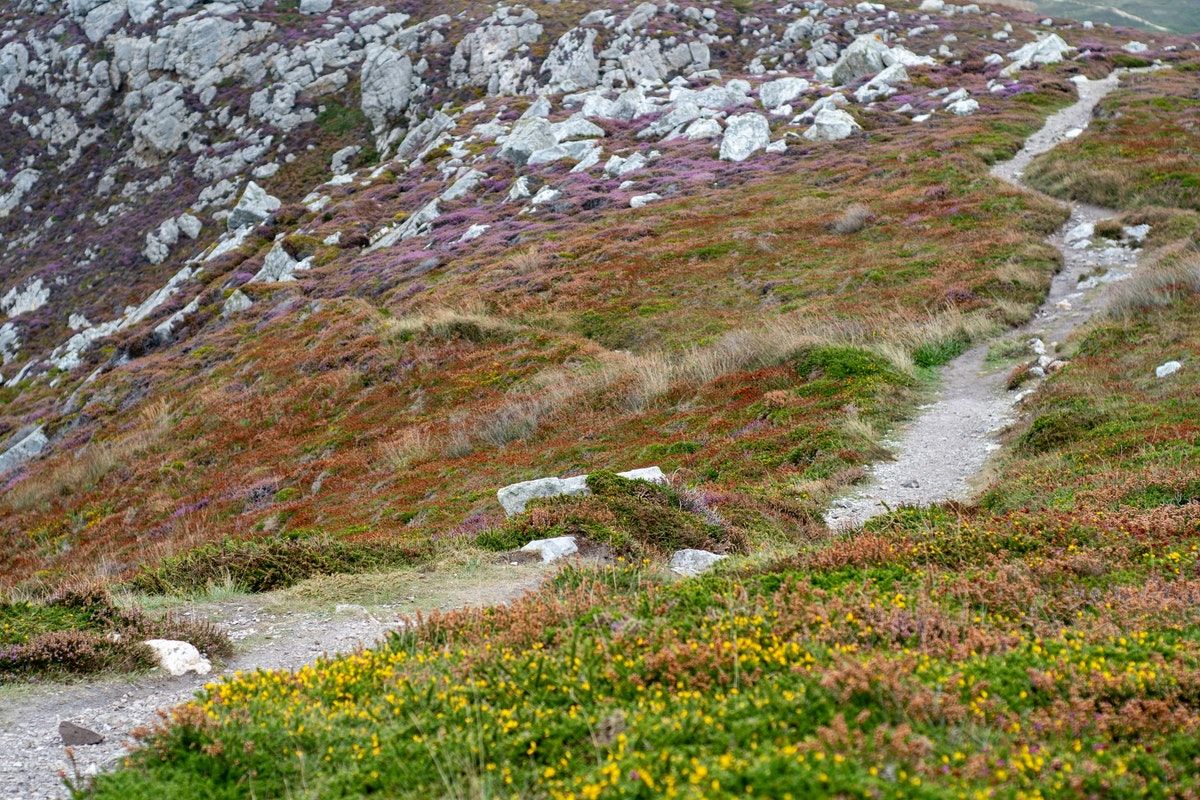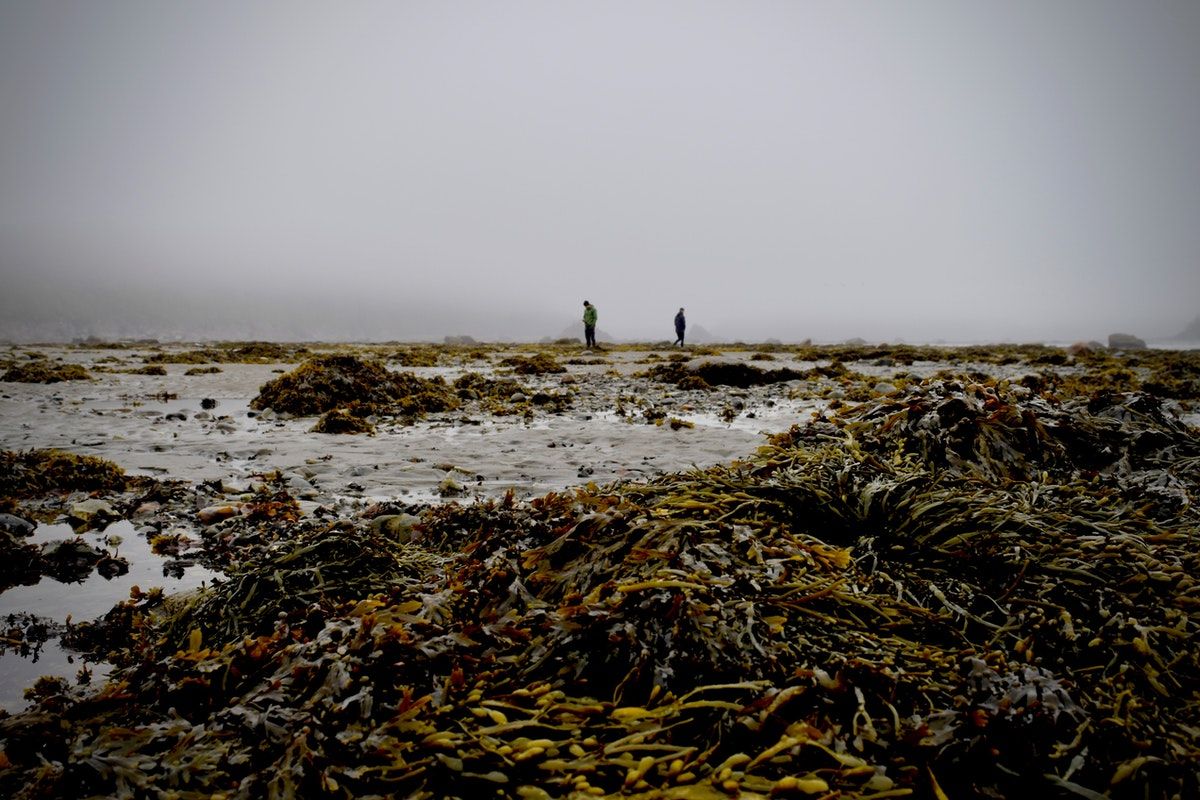
Lost Decade & Destructive Highway
The latest news on nature and conservation in the UK.
National news
Lost decade | It’s been a bleak week for those who care about nature. A report by the UN Convention on Biological Diversity revealed that, globally, not a single one of its biodiversity targets would be met by 2020. This BBC article provides a good overview. However, the report contains no country level breakdowns, so the RSPB released its own report assessing the progress of the UK government. It says that the UK has actually met just three of these international targets – and has gone backwards in six areas. Their assessment of Northern Ireland’s biodiversity commitments was similarly depressing. “The obvious conclusion we make is that our current approach is woefully inadequate,” wrote the RSPB’s Martin Harper. The charity has now launched a campaign to push for legally binding targets to restore nature across the UK. The news was widely covered, including in the BBC, the Guardian and the Times.
Dirty water | England’s rivers are in a parlous state, according to new data released by the Environment Agency. Not a single river achieved a good chemical standard, which suggests that pollution from sewage discharge, chemicals and agriculture is having a huge impact on water quality, according to the Guardian. Just 14 percent of rivers achieved a good ecological standard. The Telegraph also covered the story. Separately, the Times reported that rare species are threatened by the Environment Agency’s failure to meet the terms of a court order protecting rivers from agricultural sewage.

Hunting | Want to see all your friends again? Just don your Barbour jacket and reach for your gun. Grouse shooting and hunting were among the activities exempted from the government’s new lockdown rules, which prevent gatherings of more than six people. The Huffington Post broke the story, which was widely covered elsewhere. The news prompted outrage, with campaigners pointing out that the exemption was both elitist and bad for nature. An article by the conservationist Miles King, in West Country Bylines, looks at the various Conservative Party supporters and donors that are connected to grouse moors in the UK.
In other news:
- Will peat bog burning be banned? It’s unclear, but Zac Goldsmith has denied rumours that legislation has been shelved, reports ENDS.
- Work to protect Scotland’s historic buildings from climate change has been scaled back due to the pandemic, reports the Herald.
- The Wildlife Trusts says that new areas of “wild belt” land should be created as part of the government’s planning reforms, reports the Guardian.
- According to the RSPB, the fish sold in British supermarkets is killing rare birds, whales and dolphins, reports the Telegraph.
Across the country
Flintshire | Environmental campaigners and local politicians have joined forces in an attempt to prevent the construction of a four-lane highway through North Wales. The so-called Red Route is a 13km dual carriageway that will link to the A55 corridor. Campaigners say that its construction would destroy ancient and valuable habitats and is inconsistent with the government’s policies on climate change. In a letter addressed to the Minister for Economy, Transport and North Wales, the campaigners wrote: “This enormous dual carriageway is by far the largest new highway proposal in the whole of Wales…It would rip through ancient woodland and old flower-rich meadows, damage this historic landscape, and destroy viable farm holdings.” The Daily Post covered the story. You can add your own name to the letter. (If everyone who subscribes to Inkcap does this, they’ll almost reach their target of 2,000 signatures!)
Hampshire | The government has announced a new scheme to reduce nitrate pollution in the Solent area by… building more houses. This is how it works: house-building has stalled over concerns that nitrates were threatening the Solent’s habitats and biodiversity. But developers want to build houses across south Hampshire, so the government is investing in a “nitrate trading” auction platform, allowing developers to purchase credits that will help to clean up habitats elsewhere. The story is covered in the Portsmouth News. The local Wildlife Trust is collaborating on the project; they wrote a detailed blog post about the idea in August, which acknowledged that “some supporters will not want to see housing unlocked in this way” but that “this is the only solution on the table that can commit to reducing nitrates and creating more space for nature.” Understandably, there has been some scepticism about this approach to nature restoration.
Powys | Backlash against the number of chicken farms being built across Powys has reached new heights, with more than 75,000 people signing a petition calling for a halt in their construction, reports the BBC. The petition blames the chicken poo for river pollution in the River Wye, and accuses Natural Resources Wales of ignoring algal blooms that they say is caused by phosphates in this excrement. The council has approved 75 chicken farms in Powys since 2017. Separately, another massive chicken farm has been approved by East Suffolk Council; the three poultry houses could store 141,000 chickens, reports the Eastern Daily Press. The proposal is still subjected to a call-in request by the government.
Elsewhere:
- A pair of sea eagles have successfully bred in Royal Deeside for the first time in 200 years, reports the BBC.
- A satellite-tagged hen harrier has disappeared over a grouse moor in North Yorkshire, reports BirdGuides.
- Work is beginning to restore the natural path of a stretch of river running through Stoke-on-Trent.
Reports
Butterflies | The government has released its latest statistics on butterfly population trends, including habitat specialists and those that live in the wider countryside. While recent years have been relatively favourable for butterflies, the overall trend is one of decline for habitat specialists and woodland species, although farmland butterflies are faring well. These declines are due to semi-natural habitat loss, the knock-on effects of a drought in the 1970s, and the loss of open spaces in woodland.
Green space | Friends of the Earth and the Ramblers both released very similar research this week, looking at access to green space across the country. Both found stark inequalities across the country, correlating to wealth and ethnic background. The FoE analysis found that “42% of people from BAME backgrounds live in the most green-space deprived areas, compared to just 15% of white people”. It also contains a map where you can see how your own area compares to the country as a whole (mine came in category ‘C’).
Lockdown | The Wildlife Trusts in Lancashire, Manchester and North Merseyside have released a report looking at how local nature has helped people to get through the coronavirus lockdown. According to their survey of 1,200 locals, 99% of people said that being able to connect with nature during the restrictions was important to them (although it’s not clear how representative this survey is of the population as a whole). By the way, if you live in this area, you should check out the Manchester Mill, a new newsletter publication that’s doing amazing stuff.
Science
Farming | Not only is the world facing a pandemic and crazy wildfires – new analysis by the UK Centre for Ecology & Hydrology has confirmed British farmers’ fears that 2020 has produced the worst harvest for 25 years, following a year of extreme weather: “torrential rain at crucial times hampered sowing of most types of crops, an exceptionally dry spring affected plant growth and finally heavy downpours in August”. Just a thought, but perhaps it’s time to address this climate change issue?

Ocean | An important Scottish ecosystem known as maerl beds are at risk from climate change, according to new research. Even under the best case scenario, where emissions are rapidly reduced, maerl bed distribution will shrink by 38% by the end of the century. This would be devastating for the flora and fauna that live in this habitat, including commercially important species like scallops, the researchers explain in an article for The Conversation. The BBC also covers the findings.
Trees | Citizen science is not hugely useful for collecting meaningful data about the threats facing UK trees, according to a new study. The researchers examined a project led by Open Air Laboratories, which tested how the general public can help in surveilling the health of our trees. They found that, although there was considerable public engagement, the results were “only partially of value” to tree health specialists. There is a nice summary of the study in the BBC, including the authors’ recommendations on how to improve citizen science.
Driftwood
Space for nature | A decade on from the Making Space for Nature report, a government-commissioned review of England’s ecological network, lead author Sir John Lawton has written to the prime minister, admonishing the government for the continued paucity of the nation’s environment. “As a result, England remains among the most nature-depleted nations in the world,” he writes. The letter contains three overarching recommendations for the future, and urges the government to commit an additional £1 billion to making space for nature. The letter is also signed by Peter Brotherton, Natural England’s director of science, who has written his own blog about it. The BBC covers the story.
Greywell Moors | The nature writer Helen Macdonald has written a short account of her visit to a wild spot in Hampshire, which you should read simply because everything she writes is miraculously good. She even mentions chalk streams, which are my current obsession. “We are indeed living in terrible times for the natural world, but the way the richness of Greywell Moors is maintained through careful guardianship reminds us that with love and care and expert protection, nature can thrive,” she writes.
Beavers | Natural Resources Wales has launched a public consultation on whether to allow the release of up to six beavers into an enclosure on a nature reserve near Machynlleth in Wales, following an application by the Montgomeryshire Wildlife Trust. Beaver reintroduction guru Derek Gow was unimpressed. “This is promoted by ridiculous and pathetic timidity,” he tweeted. “Plus the normal bunch of old rabid ranters. Utter nonsense. Say yes.”
Further reading:
- The chief executive of National Resources Wales is giving a speech about the Welsh uplands.
- Natural England has a blog clarifying its position on raptor persecution.
- The Wildlife Trusts have responded to the England Tree Strategy consultation.
- Remember a while ago I mentioned a nature-themed musical project for children? Well, here’s the final product and it’s adorable.
- Brighton University wants to gauge the public’s views on the white stork reintroduction project. You can participate here.
- The Times has published an opinion piece by an anti-HS2 campaigner about how the project threatens the environment.
Happy days
Walks | Autumn is here and Forestry England is very excited. It has published a series of guides to the best autumn walks around various parts of the country, including the midlands, the northwest, the south, the southeast and the southwest. I couldn’t find one for the northeast, so I guess I'll just have to find my own conkers. Countryfile has also published this list of the best autumn wildlife spectacles.
Image credits: Victor Ochieng, Tim Hill, mbll, wurliburli
Subscribe to our newsletter
Members receive our premium weekly digest of nature news from across Britain.
Comments
Sign in or become a Inkcap Journal member to join the conversation.
Just enter your email below to get a log in link.








